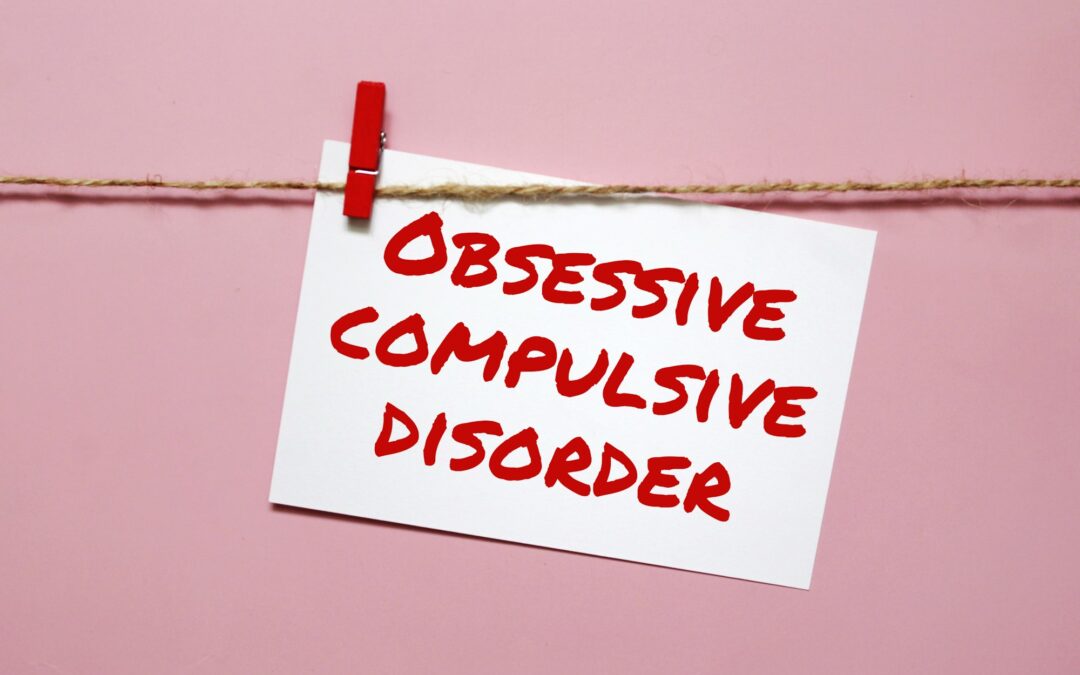Obsessive-Compulsive Disorder (OCD) is characterized by persistent, unwanted thoughts (obsessions) and repetitive behaviors (compulsions) that individuals feel driven to perform. For those seeking OCD treatment in Naples, Cognitive Behavioral Therapy (CBT), specifically through a process known as Exposure and Response Prevention (ERP), offers a structured approach to help manage and overcome these intrusive thoughts and compulsive actions. At The Fischer Institute, we specialize in using CBT and ERP to provide a path toward regaining control of one’s thoughts and actions, significantly enhancing daily functioning and overall mental health.
Understanding OCD:
OCD involves a debilitating cycle of obsessions—distressing and intrusive thoughts or images—and compulsions—behaviors performed to alleviate the distress caused by these thoughts. This cycle can become a significant barrier to daily functioning and quality of life. Common manifestations of OCD include:
- Contamination fears and cleaning rituals
- Checking behaviors (locks, appliances, etc.)
- Symmetry and ordering compulsions
- Intrusive thoughts of harm or violence
- Religious or moral obsessions
- Hoarding tendencies
- Need for constant reassurance
Individuals may find themselves caught in ritualistic patterns that disrupt their normal everyday activities and consume hours of their day. Recognizing these thoughts and behaviors as symptoms of a disorder rather than rational concerns or actions is the first critical step in managing OCD. This recognition helps demystify the feelings of chaos and restores a sense of personal agency.
The Role of CBT and ERP in Managing OCD:
At The Fischer Institute in Naples, we utilize CBT for OCD, focusing on breaking the obsessive-compulsive cycle through several strategic interventions:
Cognitive Restructuring:
- Identify irrational beliefs sustaining obsessive thoughts and compulsive behaviors
- Challenge these distorted thoughts using evidence-based techniques
- Gradually replace irrational beliefs with more realistic, balanced thoughts
- Learn to recognize and respond to cognitive distortions
Exposure and Response Prevention (ERP):
- ERP is the cornerstone of CBT for treating OCD. It involves:
- Gradual exposure to anxiety-provoking stimuli or situations
- Refraining from engaging in compulsive behaviors
- Allowing anxiety to naturally subside without ritualistic actions
- Building tolerance to discomfort and uncertainty
Mindfulness Techniques:
- Develop present-moment awareness to reduce rumination
- Learn to observe thoughts without judgment
- Practice detachment from obsessive thoughts
Behavioral Experiments:
- Test the validity of obsessive fears in real-life situations
- Gather evidence to challenge OCD-related beliefs
- Build confidence in facing feared situations
Detailed Steps in ERP:
At The Fischer Institute, we implement ERP through a structured, step-by-step process:
Assessment and Hierarchical Listing:
- Create a detailed list of triggers that spark obsessive thoughts
- Rank triggers by the intensity of anxiety they produce
- Develop a personalized exposure hierarchy
Controlled Exposure:
- Begin with the least distressing triggers in a therapeutic environment
- Gradually progress to more challenging situations
- Use in-vivo (real-life) and imaginal exposures as appropriate
Prevention of Compulsive Response:
- Learn to resist urges to engage in compulsive behaviors
- Develop alternative coping strategies
- Practice tolerating increased levels of anxiety
Repetition and Reinforcement:
- Engage in repeated exposure sessions
- Track anxiety levels and compulsive urges over time
- Celebrate progress and improvements
Skill Generalization:
- Apply ERP techniques to new or unexpected OCD triggers
- Develop a toolkit for managing OCD symptoms independently
Additional CBT Strategies for OCD Management:
In addition to ERP, we employ several complementary CBT techniques to enhance OCD treatment. To start, there is Cognitive Defusion, in which one learns to create distance between oneself and obsessive thoughts. Practicing these techniques reduces the power of intrusive thoughts. Next is Values Clarification, where you identify personal values and life goals and use them as motivation for engaging in challenging ERP exercises. Then, there’s Habit Reversal Training, where you’ll learn to develop competing responses to replace compulsive behaviors, which will help increase awareness of urges to perform rituals. Family Involvement educates family members about OCD and its treatment and teaches relatives how to support the individual without enabling OCD behaviors. Finally, Relapse Prevention is where Dr. Fischer will help develop a personalized plan for managing future OCD flare-ups. You’ll also learn to identify early warning signs and implement coping strategies before the flare-ups intensify.
The Journey to OCD Recovery:
Managing OCD requires a nuanced understanding of its mechanisms and a committed approach to therapy. At The Fischer Institute in Naples, we guide you through each stage of recovery:
- Education: Learn about the nature of OCD and how CBT and ERP can help.
- Skill Building: Develop the necessary tools to challenge OCD thoughts and resist compulsions.
- Gradual Exposure: Work through your personalized hierarchy of triggers.
- Practice and Reinforcement: Apply CBT and ERP techniques in daily life.
- Maintenance: Learn strategies to sustain progress and prevent relapse.
CBT, particularly through ERP, offers powerful tools for breaking the cycle of obsessive-compulsive thoughts and behaviors, enabling individuals to regain control over their lives and experience lasting relief. While the journey may be challenging, the results—a life reclaimed from the grips of OCD—are profoundly rewarding.
If you’re struggling with OCD in Naples and looking for effective strategies to manage your symptoms, consider reaching out to The Fischer Institute. Our specialized CBT programs, including ERP, are tailored to address the unique challenges of OCD. With expert guidance and evidence-based techniques, you can start your journey towards recovery and regain your peace of mind. Contact us today to take the first step towards a life free from the constraints of OCD. Our compassionate team is ready to support you in developing the skills and confidence needed to overcome obsessive-compulsive patterns and rediscover joy in your daily life.


Recent Comments